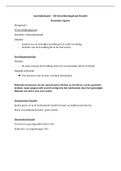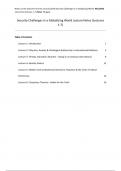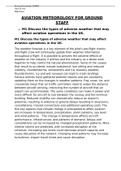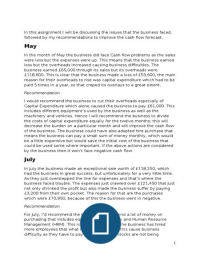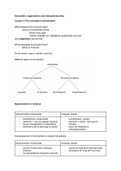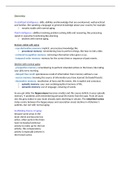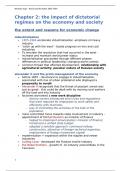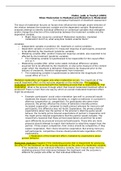Historians have disagreed about the reasons for the starts of the Cold War.
What is your view about the reasons for the start of the Cold War?
With reference to three chosen works:
Analyse the ways in which the interpretations of the question, problem or issue
differ
Explain the differences you have identified
Evaluate the arguments, indicating which you found most persuasive and
explaining your judgements
Arthur Schlesinger Jr blames Russia’s problematic view of world order, which was based
upon the Soviet sense of insecurity and the desire to expand Russian territory, as a root
cause of the Cold War. He argues the Kremlin had a specific, non-negotiable view of how the
world should move on following the conclusion of World War II, which initially strained the
relationship between Russia and America. The Russian leaders believed that each great
power should have an “acknowledged predominance in its own area of special interest.” 1
This is known as the ‘sphere-of-influence’ view and involves “sharp contradictions” 2 with
America’s universalist view. Schlesinger underlines one main reason as to why Americans
were against any agreements about spheres of influence, and the dangers of such
agreements. He believes that dividing the world is “inherently unstable” 3 as it promotes
competition instead of co-operation between the great powers. The Americans realised that
this solution would eventually lead to a third world war. Schlesinger clearly feels that
universalism was the obvious approach, yet the Kremlin refused to even consider America’s
universalist view. This could be ascribed to the Soviet sense of insecurity. An American
universalist approach to the post-war world exacerbated Russians’ worst fears as it would
leave their national security in the hands of other nations. Historically, Russia has been a
target for invasion, having been invaded in 1812 by the French and in 1941 by the Nazis.
Russia’s history of invasion, compounded with the terrible losses the Russian army suffered
in World War II, has led most people to consider Stalin’s priority of protecting his borders
from future attack reasonable. In fact, Schlesinger notes that “the Americans were perfectly
ready to acknowledge that Russia was entitled to convincing assurance of her national
security.”4 This suggests that the US were willing to compromise and guarantee Russia’s
security, but Russia continued to selfishly pursue their ‘sphere-of-influence’ policy. This left
the US with no choice but to believe that Russia’s motives for expanding their sphere of
influence went further than security issues. The evidence for this can be seen through
Stalin’s ‘salami tactics’ when taking over Eastern Europe and Soviet involvement in Iran.
Schlesinger acknowledges that many historians believe that Truman’s policies “left Moscow
1
Arthur M. Schlesinger Jr, Origins of the Cold War, (1967), p. 26
2
Arthur M. Schlesinger Jr, Origins of the Cold War, (1967), p. 26
3
Arthur M. Schlesinger Jr, Origins of the Cold War, (1967), p. 36
4
Arthur M. Schlesinger Jr, Origins of the Cold War, (1967), p. 37

